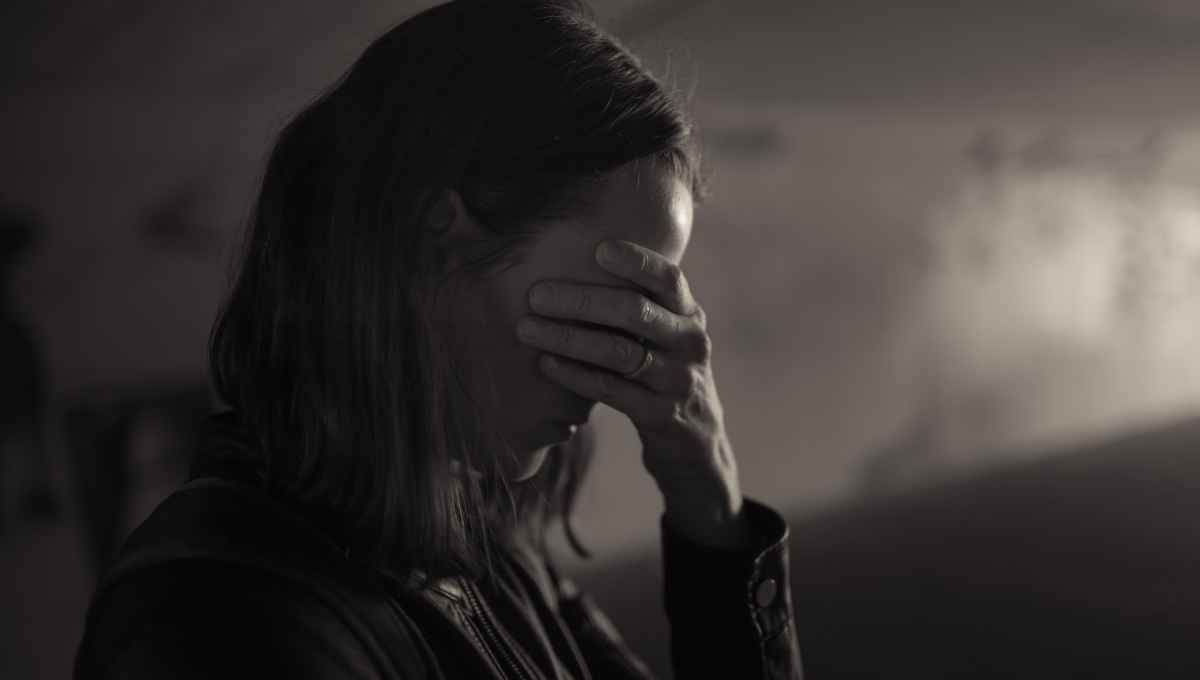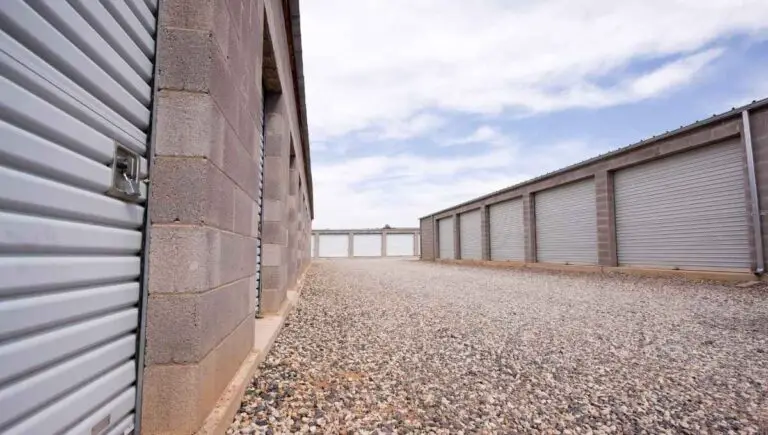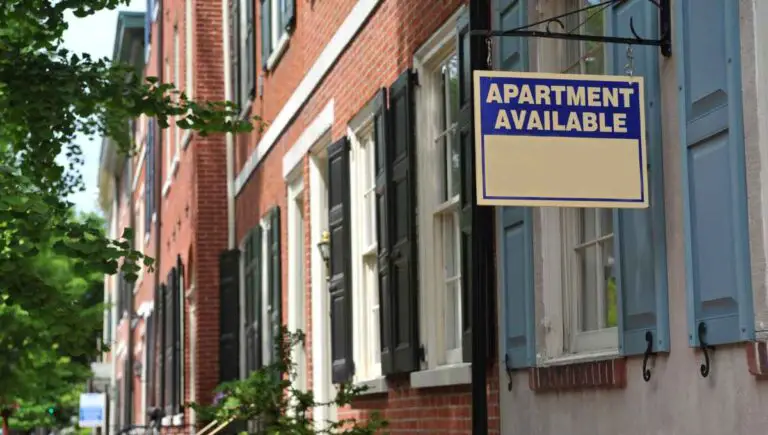Can I Sue My Landlord for Shutting off My Utilities?

Renting a home comes with certain expectations and responsibilities, including paying rent on time and maintaining the property. However, what happens when a landlord takes matters into their own hands and shuts off a tenant’s utilities? Can you sue them for this?
In some cases, a tenant may be able to sue their landlord for shutting off their utilities. This can be considered a breach of the lease agreement or a violation of state landlord-tenant laws. However, the specific circumstances and laws surrounding the situation will determine whether a lawsuit is possible or not.
It’s hard to tell the root of the matter when there’s a huge lack of communication in this odd tenant-landlord relationship. So, in this article, we’ll discuss in what circumstances your landlord can shut off your utilities, when shutting them becomes illegal and what rights can protect you if you suspect that they are using your utilities to evict you.
This post contains affiliate links. This means Household Blogger may earn a commission should you make a purchase using any of our links. Please refer to our full affiliate disclosure policy for full details.
Here’s a Quick Pro Tip!
A landlord can’t cut off your utilities as a form of payment, but they can do it if a huge emergency needs to be attended to, like a burst pipe, a leak, or a fire break out. In the meantime, you’ll need to make adjustments that provide you comfort.
You can use these products while you wait for the utilities to be turned on again, though we hope it never comes to that:
1. LED Camping Lantern – Don’t only illuminate your house. Charge your phone too! That way, you won’t have to worry about not waking up to work the next day.
2. Wood Pellet Fire Pit – For when your electricity isn’t available in winter. You’ll be able to get heat while you wait until it comes back.
3. PureLife Water – Better be safe than sorry! Use this when water utilities are shut off.
Landlords and Utility Rights
Before getting into the details about how to proceed when a landlord unjustifiably cuts off your utilities, let’s dig into whether your landlord can cut off your utilities as a way to receive rent payment or other benefits.
Can a Landlord Shut off Utilities for Non-payment of Rent?
A landlord can’t shut off utilities due to non-payment of rent. Doing this is illegal in most states, and the landlord can be legally liable if they do it with such intention. So if your landlord has cut your utilities due to this, consult your local attorney.
For example, according to the North Carolina Department of Justice, landlords who “resell” utility services can’t cut them off due to the tenant’s lack of rental payment.
Another example to consider is Texas law, which states that a landlord is forbidden from shutting off utilities because of the lack of responsibility of the tenant that fails to pay for utilities or rent.
So, we can learn from this that a landlord should never consider shutting off utilities when a tenant fails to pay rent. Besides, doing so can count as tenant harassment if it becomes a normal occurrence.
Can a Landlord Turn off Utilities?
A landlord can turn off utilities exclusively in cases where they need to do an inspection, make some structural repairs, or if there is an emergency. But they can’t shut off utilities without prior notice. Otherwise, they may be violating tenant rights.
As a tenant, the landlord has to provide you with utilities. Usually, the cost of the utilities is included in the rental lease agreement. In other cases, the utilities are in your name, which means you are the only one who can access them.
What Are My Utility Rights as a Tenant?
As a tenant, you have the right to a good habitable home, which is only made possible by the landlord’s obligations. Landlords often pay, offer, and keep utilities functioning, including gas, electricity, water, and the like.
Your landlord must inspect your house and check for issues regarding your utilities, like water and electricity problems. If your landlord fails to provide this for you, they’re breaking the law since it is their legal obligation to guarantee your tenant’s rights.
Moreover, a landlord can’t shut off your utilities as a way to get you out of their property. If that were to occur, you have the legal right to sue them, and they’ll have to face serious fines since doing so can violate your tenant’s rights.
Additionally, some states give you extra protection if one of the members of your household is a very young child, an elderly or if they’re disabled. And in other instances, the law protects you from shut-offs if you’re currently in financial hardship.
Can a Landlord Turn off the Water Without Notice?
A landlord cannot turn off the water without notice because of the importance of this utility service. Water is a vital and critical service everyone needs, and shutting it off without notice can be detrimental to your household.
Your landlord can’t be turning off your water utility service out of the blue. They need to give you prior and reasonable notice before they decide to take this action. For example, they must inform you if they need to shut off utility services because a repair needs to be done.
Moreover, they have to give you the timeframe during which these repairs need to be made. That way, you’ll get to prepare yourself with enough supplies, such as emergency water, to bathe, drink and cook with.
Can a Landlord Turn off Electricity Without Notice?
A landlord cannot cut off your electricity without notifying you beforehand. Doing so can be illegal, as this is an essential service that everybody needs and uses. Additionally, they only can cut it off if an emergency occurs.
According to Texas law, a landlord cannot shut off electricity, water, or other utilities unless justifiable. Things like an inspection, repairs, and emergencies count as valid reasons to shut off electricity (or any other utilities).
Also, your landlord must notify you before the repairs they need to make regarding electricity so you can store non-perishable foods. Your groceries can likely become affected by this, hence why it’s important to prepare.
Can a Landlord Charge for Water and Sewer?
A landlord can charge for water, sewer, garbage service, and electricity. The only requirement for them to do so is to state it clearly within the rental lease agreement and have both parties agree.
So, your landlord can ask you for some cash to cover water and sewer services, so long as it’s on the lease and it’s not an additional “surprise” cost. In any case, additional costs should be included after a new lease agreement and not on the current one to avoid breaking the previously established agreements.
What if My Landlord Won’t Show Me the Utility Bill?
If your landlord doesn’t show you the utility bill, chances are they already included the percentage you need to pay within the rental payment. Therefore, your landlord should specify this cost in your lease.
Usually, landlords include the cost for utilities within the rental lease when they use metering equipment to determine how much usage you give to such utility. This is most common with electrical utility services.
In such cases, your landlord isn’t required to show you the electricity bill. But you have a right to ask them how they calculate this utility’s total cost and how they divide the payments. Yet, this won’t guarantee that they’ll answer you honestly.
Moreover, in places where electricity is measured with an individual meter, the tenant is usually directly responsible for payment, aside from the standard rental lease. In such cases, the utility bill is much needed.
Cutting Off Utilities in Winter
Now that you know what your landlord can and can’t do regarding the utilities, it’s time to explore these matters when discussing weather seasons. For example, is your landlord allowed to cut off essentials during winter? Let’s talk about it below.
Can a Landlord Turn Off the Heat Without Notice in the Winter?
Your landlord can’t turn off the house’s heat or other utilities without notice or proper justification during winter. Most of these services are deemed essential during this time of the year, so cutting them off can even be illegal.
Turning off the heat of the house won’t only damage and make you feel uncomfortable. But, it can also risk your health, especially if you don’t have winter items to protect you, such as jackets and insulating blankets. Therefore, it could cause your landlord legal issues.
You might also enjoy our post on If a Landlord Can Take Pictures Without Your Permission
Can a Landlord Turn off Water Without Notice in Winter?
Your landlord can’t shut off the water without notice in winter or any other season of the year. The reason for this is that water is an essential service. Therefore, shutting it off without prior notice can violate your tenant’s rights.
Your landlord must tell you when they need to shut off your water. And they must have valid reasons for them to do so. Additionally, if they believe that there’s a threat to the property caused by water, this can be something that may justify the need to cut it off.
Can a Landlord Turn off the Electricity Without Notice in Winter?
A landlord can’t turn off the electricity during winter without proper notification or justifiable reason. They must inform you if they wish to turn off the electricity due to needed repairs. Yet, it could be illegal in some states.
Nevertheless, electricity is one of the essential services during winter because it allows people to keep heat, hot water, and other essential appliances functioning. That’s why in some states, shutting it off is illegal.
Can a Landlord Turn off the Electricity in Winter?
Some states forbid landlords from turning off the electricity in winter. Therefore, not all of them can. Generally, a landlord can’t shut off any utility unless there is a justifiable reason, such as a needed repair or an emergency.
While landlords are allowed to shut off electricity in winter because of fire hazards or other emergencies, they must notify the tenant in advance to make the proper adjustments to prepare themselves and temporarily move elsewhere.
Having No Utilities in Summer
We now know that the law protects tenants during the winter season, so it’s unlikely that a landlord cuts off essential utilities, such as heat. But what about the summer season? Let’s find out now.
Can a Landlord Turn Off the Heat Without Notice in the Summer?
Landlords can’t turn off the heat without notice during summer like any other utility. Therefore, they must provide a notice in advance to let you know what to prepare for and to allow you to make the necessary adjustments.
However, the summer heat isn’t very appropriate, considering that high temperatures may harm you. What’s truly important is keeping your AC working; unfortunately, few states legally bind landlords to provide you with one.
Lack of heat would affect you more during the winter, so you should have insulating blankets and other means to keep yourself warm if your utilities are cut off during this time.
Can a Landlord Turn off Water Without Notice in Summer?
Landlords can’t, generally, turn off your water or any other utility without prior notice. Some states even forbid them to shut down this utility, as it is an essential part of everyday life that can affect your household tremendously.
A landlord could only interfere with your utilities if a real emergency forces them to act immediately. But in normal circumstances, they must give you notice before the shut-off so you can prepare and gather necessary supplies, such as bottled water.
Can a Landlord Turn off the Electricity Without Notice in Summer?
Your landlord can’t turn off your house’s electricity without prior notice. If they do so constantly without a valid reason, they could be legally liable, which may cause the property to be deemed inhabitable.
Your landlord is obligated to provide you with a habitable home, so shutting off electricities out of the blue is likely obstructing your tenant’s rights. So, if your landlord shuts off your utilities without a valid reason or notice, you have the right to demand them.
However, if there is a huge emergency, like a leak or burst pipe, that needs to be immediately fixed, they can shut off the utility without prior warning due to the nature of the incident. Although unfortunate, this situation may require you to get water elsewhere.
Can a Landlord Turn off the Electricity in Summer?
Landlords can’t turn off electricity in summer without telling you first. Additionally, tenants have very little shut-off protection during extreme heating weather, unlike in highly cold seasons.
So, the rule is as follows: a landlord cannot shut off your electricity, or any other essential utility, unless there is a true emergency that needs to be resolved or if there is any repair or construction that is going to take place.
Related Questions
Can a Landlord Evict You Without Going to Court?
A landlord cannot evict you without going to court. Any misconduct that may cause them to harm, obstruct or interfere with your peace within the property may be an illegal eviction, and your landlord will face serious legal proceedings.
The only way a landlord can evict you is through a court order, and they risk being charged with big fines if they do anything with the intent to repel you from living on the property. Moreover, they could be charged with tenant harassment if they proceed with illegal conduct.
What Are Tenants’ Rights?
Tenant’s rights are statements explicitly expressing what a tenant is entitled to and isn’t entitled to. Moreover, they also disclose the landlord’s responsibilities to a tenant so that they know how to proceed in case something goes wrong.
Basic tenant rights include:
- The right to a habitable home, which your landlord must provide,
- The right to enjoy a quiet space,
- The right to privacy, meaning your landlord cannot interfere in any way with the enjoyment of your living space;
- The right to fair consumer relationships,
- The right to not be over-charged for security deposits,
- And the right to affordable rent.
Can You Turn off Utilities on a Squatter?
You can’t turn off utilities on a squatter. Surprisingly, squatters have a “squatter bill of rights,” similar to that of a former tenant. So, if you’re looking to get rid of a squatter, you’d need to go through a formal eviction process.
Just like with a regular tenant, cutting off utilities on a squatter as a form of eviction is illegal. Although, in the case of squatters, things are more complicated because of the nature of the issue.
However, they could gain your property through adverse possession if you don’t evict them quickly. So, we highly suggest you consult with a local attorney to get more information on the matter.
Can I Be Evicted for Not Paying a Utility Bill?
You could get evicted for not paying a utility bill if this was a requirement that was established within your rental lease. However, if the utility bill is in your name, the landlord doesn’t have to worry about it.
If you have tons of utility debt and are placed under your landlord’s name, they have a right to evict you through a court proceeding formally and even demand that you pay what you owe.
But, if the utilities are in your name, then the utility companies will be the ones that will contact you directly. In this case, the landlord doesn’t have to worry because if you move out, the debt doesn’t pass on to them.
Final Thoughts
Surprisingly, landlords can shut off your utilities during an emergency or construction. But they can’t do it out of the blue or harm you in any way.
If you believe that your landlord is purposefully harming you by cutting off your utilities, the best thing you can do is to consult a professional attorney that may help you resolve the issue effectively.
Always consult with your local state laws for more guidance, and keep them close to you in case a conflict escalates. You never know when you might need them!










